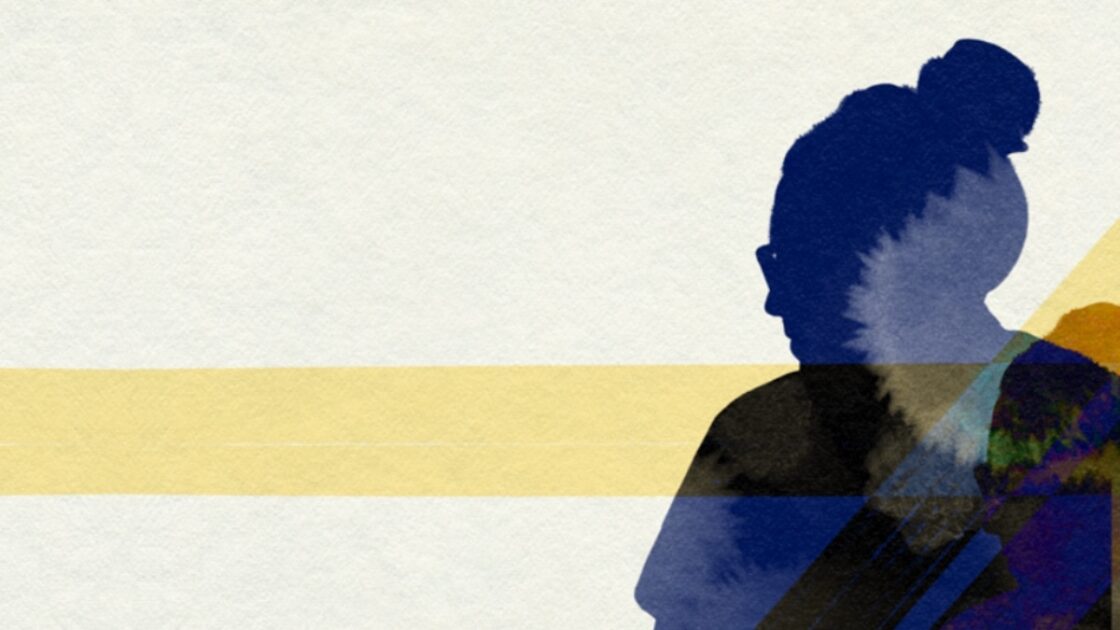What is self-harm and why does it happen?
Why do people self harm and who can they turn to for support?

Discovering that you or someone you care about is self-harming can be a difficult and overwhelming experience. You may not know where to turn to for support, and you may be confused about your or another’s reasons for self-harm.
In this article, you will find answers to the following common questions about self-harm:
What is self–harm?
How do I know if I’m self-harming?
What are some of the reasons people self-harm?
Why might some people engage in self-harm repeatedly?
Who is most at risk of self-harm?
What is the difference between self-harm and suicidal thoughts?
What is the difference between self-harm and “nonsuicidal self-injury” (NSSI)?
If you would like to learn more about the support and services available, visit our factsheet on getting support for self-harm.
What is self-harm?
Self-harm can mean different things to different people, and the way it’s understood can change based on someone’s culture. There are many ways someone might harm their body on purpose, such as not eating enough, exercising too much, or misusing alcohol or drugs. What counts as harm also depends on where you are and what’s considered normal in your culture. For example, in many cultures, tattoos and piercings are not considered harmful despite causing physical damage to a person’s body tissue.
In the Western context, self-harm is any action where a person intentionally hurts themselves. Generally, this involves biting, cutting, scratching, pulling out hair, punching or burning. People who physically and intentionally hurt themselves often do so as a way to cope with emotional distress. A coping mechanism is a pattern of behaviour or thoughts that a person uses in an attempt to manage difficult emotions or psychological discomfort. Most of the time, when a person harms themselves, they do not have the intention of taking their own life. However, people who deliberately hurt themselves are at a higher risk of suicidal behaviour in the future. This risk may be higher when someone does not receive support for their self-harm or if the reasons behind their distress are not resolved.
How do I know if I’m self-harming?
Some people may self-harm frequently and find it difficult to stop, while others might hurt themselves a couple of times and then not do it again. Some people consistently use the same method of hurting themselves, whereas others may harm themselves in different ways at different times. Self-harm isn’t always obvious and can include behaviours that you might not initially consider. This means that people can sometimes self-harm without realising it.
You might be self-harming if you’re intentionally hurting yourself as a way to deal with overwhelming emotions, or even when you feel numb or disconnected from things around you. Realising that you’re self-harming can be difficult. You might feel a mix of emotions, including fear about how others might react if they found out, or uncertainty about how to stop on your own. But it’s important to remember that you’re not alone, and there is help available. With support, it is possible to manage and overcome the urges to hurt yourself.
What are some of the reasons people self-harm?
People intentionally hurt themselves for many different reasons. Research shows that self-harm can often be used to manage distress, create a comforting or soothing experience, or explore self-identity.
Managing distress
When people deliberately hurt themselves to cope with their distress, they may be trying to:
- Reduce emotional pain by turning it into physical pain or blocking bad memories
- Communicate their distress to others and get help
- Punish themselves or get punishment or criticism from other people
- Switch on or off feelings of being numb or disconnected from reality (‘dissociation’)
- Resist suicidal thoughts or actions
Trying to create a comforting experience
When hurting themselves to create a positive experience, people might be trying their best to:
- Find feelings of comfort or relief
- Distract themselves from overwhelming thoughts, urges, or feelings
- Look for a feeling of “release”
- Protect themselves or protect others from their anger
- Achieve a sense of control or ability to “master” unpleasant feelings
Exploring self-identity
When hurting themselves to explore their identity, people might be trying to:
- Define, maintain or explore their own personal boundaries, i.e., where they begin and end
- Express their sexuality, experience a ‘sexual release,’ or cope with problems of sexual identity
- Experience a sense of belonging within a particular peer group or subculture
- Express themselves and communicate emotional distress
- Memorialise important events by creating physical reminders on their bodies
You might not know why you or someone else hurts themselves at first. Learning more about self-harm and working with a mental health professional, like a counsellor, can help you understand why you hurt yourself and how you can begin to develop alternative, less harmful coping mechanisms.
Why might some people engage in self-harm repeatedly?
Some people who intentionally hurt themselves say that doing so can provide short-term relief from negative emotions. Someone may be self-harming as a way of trying to cope with difficult thoughts or emotions. If they experiences temporary relief from this, they are less likely to try other ways of coping that they may find more helpful. As self-harm is often done alone, people can be less likely to seek and receive support from others. This can lead to someone relying on physically hurting themselves as their main way of coping, and feeling a strong urge to repeat it when difficult emotions arise.
Some people who self-harm repeatedly may experience symptoms similar to people with substance or behavioural addictions:
- Before hurting themselves, they may become preoccupied with the urge to self-harm, finding this urge difficult to control
- They might frequently think about self-injury, even if they don’t act on these thoughts
- They may experience relief or the desired response during or shortly after self-injury, showing patterns of behaviour that suggest a dependence on repeatedly engaging in self-injury
Who is most at risk of self-harm?
Self-harm is complicated, and there isn’t just one reason why someone might intentionally hurt themselves. Self-harming affects people of all ages, generations, gender identities, and sexual identities. However, certain events and experiences can make it more likely for a person to start self-harming.
Mental health difficulties
Researchers have found that certain mental health difficulties can increase the likelihood of someone self-harming.
Some of these include:
- Mood disorders like anxiety or depression
- Eating disorders or eating distress
- Feelings of hopelessness or pessimism
- Problematic drug or alcohol use
- Low self-esteem
- History of psychiatric illness in the family
- Living with a personality disorder, such as borderline personality disorder (BPD), also known as emotionally unstable personality disorder (EUPD)
Social factors
Social isolation or having few friends can increase someone’s risk of intentionally hurting themselves. Studies show that being around others who are repeatedly self-harming can also be a risk factor, especially for people already dealing with mental health challenges, low self-esteem, or difficulty managing emotions. Discrimination based on sexual identity, gender identity, race, ability level, or any other personal characteristic can also add to this risk.
Exposure to past trauma and/or stressful life events
Researchers have found a strong connection between experiencing sexual abuse or childhood neglect and the risk of self-harming behaviour. People who have experienced dating or relationship violence, as well as those experiencing the breakup of a relationship, may also be at increased risk of self-harming.
Stressful life events can also increase the likelihood of a young person self-harming as a coping mechanism. These might include:
- Difficulties at school, such as bullying, dropping out, or getting low grades
- Trouble with family, like having a harsh or controlling parent
- Changes in the family, such as parents separating or having a divorce
- Suicide of a family member or a friend
How often will someone self-harm?
Someone’s risk of self-harming increases with the number of times they have previously self-harmed.
Gender and sexual identity
Research suggests that girls aged 10-14 years are much more likely to self-harm (leading to hospital visits) than boys of the same age. Overall girls and women aged 10-24 years more commonly self-harm than boys and men of the same age.
According to the latest national research by TCD and BelongTo, which involved more than 2,800 LGBTQ+ young people, self-harm rates are highest among transgender and gender non-conforming youth, with 75% reporting self-harm.
This same study found that among the 631 LGBTQ+ participants aged 14 to 18, self-harm rates were reported to be three times higher than those of their non LGBTQ+ peers.
What is the difference between self-harm and suicidal thoughts?
While there can be a link between suicidal thoughts and self-harm, many people who hurt themselves are not actively suicidal. It is important to get support if you are harming, because it can lead to serious injuries.
Some people describe intentionally hurting themselves as a way of staying alive and managing severe emotional distress. This means that the person is trying their best to cope and needs support to help them through this time of emotional distress. However, repeated self-harm is the strongest risk factor for suicide. If you self-harm it does not mean that you will do it forever. There are lots of effective strategies, supports and services that can help you.
Self-harm terminology explained
Sometimes, mental health professionals and health websites use different terms, including self-mutilation and nonsuicidal self-injury (NSSI), to describe self-harm behaviours. Here, to avoid confusion, you will find explanations of the terms self-harm and nonsuicidal self-injury.
It’s important to understand that just because someone doesn’t meet the exact criteria for an NSSI diagnosis, it doesn’t mean they haven’t self-harmed or aren’t currently self-harming.
What is the difference between self-harm and nonsuicidal self-injury?
Self-harm involves a range of intentional actions that cause physical injury, like cutting, biting, scraping, or burning, without the intention of dying by suicide. However, it is not an official medical diagnosis.
NSSI is a diagnosable mental health condition based on a narrower, more precise definition of self-harm. A person with NSSI (Non-Suicidal Self-Injury) may repeatedly self-harm, like burning the skin, hitting or punching themselves, or using sharp objects to pierce the skin. This is different from actions like nail-biting, skin-picking, or hair-pulling, which usually result in less physical injury.
According to the Diagnostic and Statistical Manual of Mental Disorders, Fifth Edition (DSM-5), which doctors use to diagnose mental health disorders, someone may be diagnosed with NSSI if:
- On five or more days in the last year, they have intentionally caused damage to the surface of their body leading to bleeding, bruising, or pain
- They do so with the expectation that the injury will not lead to serious harm or death by suicide
- The behaviour causing the harm (e.g., cutting, burning, hitting) is not part of accepted cultural practices like body piercings or tattoos
- The self-harming behaviour causes significant distress in the long term, interfering with the person’s ability to function socially, in work, or in education
Getting help for self-harm in Ireland
If you or someone you care about is self-harming, seeking help can improve quality of life, even if it feels challenging. Finding someone who will listen and understand without judgement can make a significant difference. A mental health professional, like a counsellor or psychotherapist, can work with you to develop both short-term and long-term strategies for coping with difficult emotions. They can help you gradually replace behaviours with less harmful, more effective coping methods. To take the first step, consider visiting your GP, where you can explore support options that feel right for you.
If you are not ready to visit your GP, there are helplines and other immediate and anonymous support options available. For more information on accessing help, check out our article on getting support for self-harm.
Feeling overwhelmed and want to talk to someone?
- Get anonymous support 24/7 with our text message support service
- Connect with a trained volunteer who will listen to you, and help you to move forward feeling better
- Whatsapp us now or free-text SPUNOUT to 50808 to begin.
- Find out more about our text message support service
If you are a customer of the 48 or An Post network or cannot get through using the ‘50808’ short code please text HELLO to 086 1800 280 (standard message rates may apply). Some smaller networks do not support short codes like ‘50808’.






